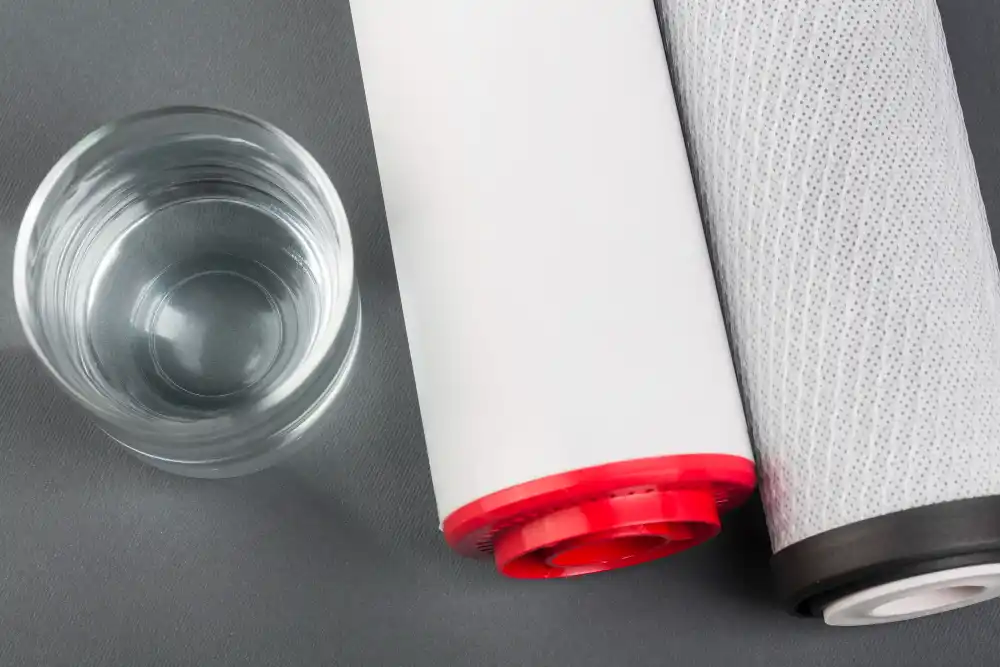How to Choose the Right Water Filter for Your Home in Florida: A Complete Guide
If you’re a homeowner in Florida, you know the importance of having clean and safe drinking water. But with so many options on the market, it can be overwhelming to choose the right water filter for your home. In this article, we’ll break down everything you need to know about choosing the right water filter for your home in Florida. From understanding the different types of water filters available to determine the best option for your specific needs, we’ve got you covered.
The Importance of Having Clean Water in Florida
Living in Florida means you’re no stranger to high levels of humidity, hot temperatures, and heavy rainfall. While these conditions may make Florida a beautiful place to live, they also create the perfect environment for harmful contaminants to enter your water supply. For instance, high levels of rainfall can cause soil erosion, which can lead to an increase in sediment in your water. Meanwhile, high temperatures can cause bacteria and other microorganisms to grow in your water.
All of these factors make it crucial for homeowners in Florida to have access to clean and safe drinking water. Without a reliable water filtration system, you risk consuming harmful contaminants that can have negative health effects in the long run.
Understanding Different Types of Water Filters
Before you can choose the right water filter for your home in Florida, it’s important to understand the different types of water filters available. Here are some of the most common types of water filters and how they work:
Carbon Filters
Carbon filters are among the most popular types of water filters on the market. These filters work by using activated carbon to remove impurities from your water. Carbon filters are highly effective at removing chlorine, sediment, and other common contaminants found in Florida water.
Reverse Osmosis Filters
Reverse osmosis filters use a semipermeable membrane to filter out impurities from your water. These filters are highly effective at removing fluoride, lead, arsenic, and other harmful contaminants found in Florida water.
UV Filters
UV filters use ultraviolet light to kill bacteria, viruses, and other microorganisms in your water. These filters are highly effective at preventing waterborne illnesses and are often used in combination with other types of filters for optimal results.
Distillation Filters
Distillation filters work by boiling water and then collecting and condensing the steam into pure water. These filters are highly effective at removing all impurities from your water, including minerals and trace elements.
How to Choose the Right Water Filter for Your Home in Florida

Now that you understand the different types of water filters available, it’s time to determine which one is right for your home in Florida. Here are some factors to consider when choosing a water filter:
Water Quality
The first thing to consider when choosing a water filter is the quality of your water. Consider having your water tested to determine the levels of contaminants present. This will help you determine which type of filter is best suited for your specific needs.
Budget
Another important factor to consider when choosing a water filter is your budget. Water filters come in a wide range of prices, so it’s important to determine how much you’re willing to spend before making a purchase.
Maintenance Requirements
Different types of water filters require different levels of maintenance. For instance, carbon filters need to be replaced more frequently than reverse osmosis filters. Consider the maintenance requirements of different types of filters and choose one that fits your lifestyle.
Filter Lifespan
Another important factor to consider when choosing a water filter is the lifespan of the filter. Some filters need to be replaced more frequently than others. Consider the lifespan of different filters and choose one that fits your needs.
Flow Rate
The flow rate of a water filter refers to how quickly the filter can produce clean water. If you have a large household or use a lot of water, you may want to choose a filter with a higher flow rate. However, keep in mind that filters with a higher flow rate may not be as effective at removing contaminants as those with a slower flow rate.
Size
The size of the water filter is another important consideration. Some filters are designed to be installed under your sink, while others are installed directly onto your faucet. Consider the space available in your home and choose a filter that fits your needs.
Certification
When choosing a water filter, it’s important to look for one that is certified by a reputable organization such as NSF International or the Water Quality Association. These certifications ensure that the filter has been tested and meets certain standards for performance and safety.
Environmental Impact
Finally, consider the environmental impact of the water filter you choose. Look for filters that use eco-friendly materials and are designed to be recycled or disposed of responsibly.
FAQs about Choosing the Right Water Filter for Your Home in Florida
- Q: Do I need a water filter if I already use bottled water?
A: Yes, you still need a water filter even if you use bottled water. Bottled water is not necessarily safer than tap water and can be expensive and harmful to the environment.
- Q: What contaminants are commonly found in Florida water?
A: Common contaminants found in Florida water include sediment, chlorine, lead, arsenic, and fluoride.
- Q: Can I install a water filter myself, or do I need a professional?
A: It depends on the type of filter and your level of DIY experience. Some filters are designed to be installed by homeowners, while others require professional installation.
- Q: How often do I need to replace my water filter?
A: The lifespan of a water filter varies depending on the type of filter and the quality of your water. Typically, carbon filters need to be replaced every 3-6 months, while reverse osmosis filters can last up to 2 years.
- Q: Are there any health risks associated with using a water filter?
A: No, using a water filter is generally safe and can help protect against harmful contaminants in your water.
- Q: What should I do if I’m still unsure which water filter is best for my home?
A: Consider consulting with a water filtration expert or contacting the manufacturer of the filter you’re interested in for more information.
Conclusion
Choosing the right water filter for your home in Florida is an important decision that can have a significant impact on the health and safety of you and your family. By understanding the different types of water filters available, considering factors such as water quality, budget, maintenance requirements, filter lifespan, flow rate, size, certification, and environmental impact, and reviewing frequently asked questions, you can make an informed decision and choose a water filter that meets your specific needs. With the right water filter, you can enjoy clean, safe drinking water in your Florida home for years to come.
How to Choose the Right Water Filter for Your Home in Florida is a crucial decision that can affect your health and that of your loved ones. By considering the various factors we’ve discussed and following the recommendations, you can make an informed decision and choose a water filter that suits your needs. Clean water is essential to living a healthy life, and with the right water filter, you can rest assured that you and your family are consuming clean and safe drinking water.
Sure, I’d be happy to expand on this topic further. Choosing the right water filter for your home is an important decision that requires careful consideration. As we’ve discussed, there are several factors to consider when choosing a water filter, such as water quality, budget, maintenance requirements, filter lifespan, flow rate, size, certification, and environmental impact.
One important thing to keep in mind is that not all water filters are created equal. Some filters may be more effective at removing certain contaminants than others. For instance, if you have high levels of fluoride or arsenic in your water, a reverse osmosis filter may be the best option. On the other hand, if you’re primarily concerned about chlorine and other common contaminants, a carbon filter may be sufficient.
Another factor to consider is the installation process. Some filters are designed to be installed by homeowners, while others require professional installation. If you’re not comfortable with DIY projects, it may be best to hire a professional to install your water filter for you.
When it comes to budget, it’s important to remember that the initial cost of the filter is not the only expense to consider. Different types of filters have different maintenance requirements and will need to be replaced at different intervals. Carbon filters, for instance, typically need to be replaced every 3-6 months, while reverse osmosis filters can last up to 2 years.
It’s also important to consider the environmental impact of the water filter you choose. Look for filters that use eco-friendly materials and are designed to be recycled or disposed of responsibly.
Overall, choosing the right water filter for your home in Florida is a decision that should not be taken lightly. By carefully considering the different factors we’ve discussed, you can choose a water filter that meets your specific needs and provides you and your family with clean, safe drinking water for years to come.


